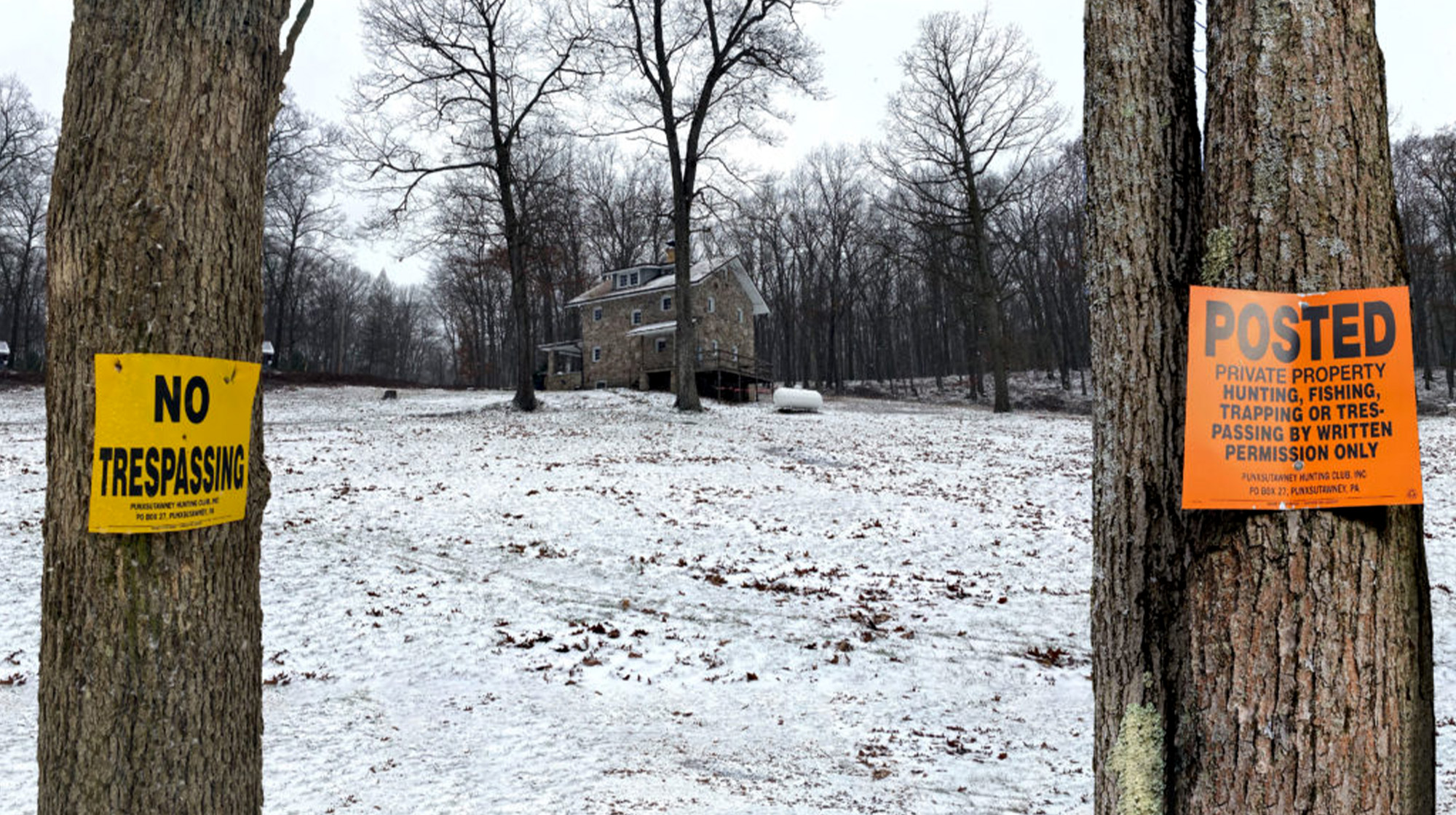
A lawsuit filed by two Pennsylvania searching golf equipment in opposition to the state’s Recreation Fee has now reached the State Supreme Court. The court docket heard oral arguments Wednesday about the case, which revolves round 4th Modification rights and whether or not recreation wardens ought to be allowed to go looking posted non-public lands and not using a warrant or possible trigger.
In most U.S. states, recreation wardens have this energy beneath the Open Field Doctrine. This long-standing authorized precept permits state and federal legislation enforcement to watch and surveil non-public lands and not using a warrant or possible trigger, and says that these actions don’t represent illegal searches and seizures beneath the 4th Modification. It applies to all non-public lands besides occupied properties and buildings and the “curtilage,” which means the property instantly surrounding these buildings.
Learn Subsequent: Can Game Wardens Hang Trail Cameras on Your Private Property?
The lawsuit that was heard within the State Supreme Courtroom Wednesday challenges that concept. It seeks to overturn three Pennsylvania statutes, in addition to a precedent-setting 2007 court docket case that strengthened the state’s adherence to the Open Area Doctrine.
Joshua Windham, an lawyer with the Institute for Justice, is representing the plaintiffs, the Punxsutawney and Pitch Pine Searching Golf equipment. Collectively, the 2 golf equipment personal hundreds of acres in Clearfield County, the place members hunt deer, bear, and different recreation. Though that acreage is posted with “No Trespassing” indicators, the 2 searching golf equipment declare that between 2013 and 2021, officers with the Pennsylvania Recreation Fee routinely ignored these indicators and bypassed locked gates with a purpose to enter the properties and surveil the hunters with out warrants.
Windham tells Out of doors Life that, to his shoppers’ data, PGC officers entered non-public lands owned by the 2 golf equipment on no less than 22 events over that time frame. He says that along with sneaking round and checking membership members for compliance with state wildlife legal guidelines, these officers hung path cameras so they might spy on the golf equipment remotely. Though some citations have been issued to hunters, Windham says none of them amounted to greater than a minor violation.
For example, Windham says there was one event the place a membership member had parked his truck on the property and walked down a path, not realizing {that a} PGC officer was watching him. The sport warden adopted the person roughly 100 yards down the path, after which confronted him to ask for his searching license.
“The hunter mentioned, ‘It’s in my truck.’ And the officer mentioned, ‘Nicely, it’s important to have it in your particular person, so right here’s a ticket,’” Windham says. “These have been largely technical violations. It’s not like we’re speaking about prolific poachers, or individuals who have been deliberately violating recreation legal guidelines.”
Due to incidents like this one, Windham explains, membership members say they’ve felt harassed and intruded upon by PGC. They are saying it’s exhausting for them to take pleasure in searching on their very own land after they really feel like they’re being continuously monitored. Windham additionally argues that it’s harmful, since a key tenet of hunter security is understanding your goal and environment, and that’s exhausting to do when officers are wandering round within the woods.
“We really feel like we’re invaded,” Punxsutawney Searching Membership board president Frank Stockdale mentioned in a news conference earlier than the State Supreme Courtroom listening to Wednesday. “We see recreation wardens on bicycles [and] of their vans on our non-public property, which is totally gated and has no trespassing indicators across the property. We really feel like we’ve been harassed.”

Windham makes it clear that their lawsuit shouldn’t be anti-law-enforcement. He says the plaintiffs notice that PGC officers have a tough job defending the state’s fish and wildlife sources, and so they acknowledge that policing non-public lands is critical. Roughly 84 % of Pennsylvania’s land is privately owned, so it might be almost not possible for recreation wardens to research potential poaching or wildlife crimes with out accessing these non-public lands.
“We’re simply saying that recreation wardens ought to function beneath the identical requirements that police [and other law enforcement] do in each different context the place an individual might commit against the law on non-public property — and that’s by establishing possible trigger and getting a warrant from a choose.”
This may be a significant shift for PGC, and Windham says the one method the plaintiffs can win their case is that if the Supreme Courtroom overturns a 2007 case, Commonwealth v. Russo, wherein a hunter was prosecuted for killing a black bear over bait on his personal land. Russo, the hunter, filed to suppress the proof collected in the course of the warrantless search that led to the quotation, and he claimed within the case that he ought to have “an affordable expectation of privateness” from recreation wardens on his posted non-public property. The court docket dominated in opposition to the hunter, which strengthened Pennsylvania’s adherence to the Open Area Doctrine.
Windham says they’ve a good likelihood at overturning the case, particularly in mild of a 2024 court decision in Tennessee, which discovered that warrantless searches on non-public land are unconstitutional.
Learn Subsequent: Tennessee Judges Rein in Game Wardens, Declaring Warrantless Searches on Private Land Unconstitutional
Windham was an lawyer in that case, too, and he says it included comparable circumstances —— recreation wardens getting into non-public lands to put in path cameras and spy on hunters. The choose in that case referred to as the observe “a disturbing assertion of energy on behalf of the federal government,” and he even drew comparisons to the tyrannies colonial People have been subjected to beneath British rule.
“It’s form of stunning how broad this Open Area Doctrine is … we discovered in a study that about 96 % of all non-public land within the nation falls beneath this doctrine. That’s about 1.2 billion acres,” Windham says. “So, we’re speaking about this rule of legislation that exposes principally all non-public land within the nation to limitless surveillance. And that’s a fairly stunning factor to say out loud. It’s a fairly stunning factor to consider.”
Trending Merchandise











